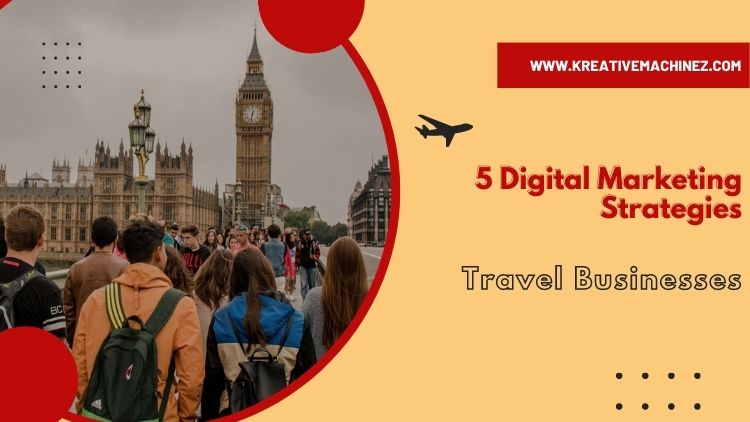Introduction:
In today's world, digital marketing is a must-have strategy for any business, and the tourism industry is no exception. With the growth of technology and the internet, people are increasingly relying on digital platforms for their travel planning and booking. In this blog, we'll discuss how tourism businesses can use digital marketing to attract more customers and boost their revenue.
Build A Responsive Website:
A responsive website is one that adapts to different screen sizes and devices, making it easier for users to navigate and engage with the content. Your website is the first impression that potential customers will have of your business, so it's crucial to make it professional, easy to use, and visually appealing. Ensure that your website has all the necessary information about your services, location, and contact details.
Optimize for Search Engines:
Search engine optimization (SEO) is the process of optimizing your website to rank higher in search engine results pages (SERPs). This means that when someone searches for keywords related to your business, your website appears at the top of the results. To optimize your website for SEO, ensure that your website has high-quality content, relevant keywords, and backlinks from reputable websites.
Use Social Media:
Social media is a powerful tool for promoting your tourism business. Platforms like Facebook, Instagram, and Twitter allow you to engage with your audience, share photos and videos of your business, and promote your services. By regularly posting updates and interacting with your followers, you can build a loyal community of customers.
Leverage Email Marketing:
Email marketing is a cost-effective way to stay in touch with your customers and promote your business. By collecting email addresses from your website visitors, you can send them regular updates about your services, promotions, and events. Ensure that your emails are engaging, informative, and visually appealing to increase open rates and conversions.
Use Paid Advertising:
Paid advertising is a quick way to reach a large audience and increase your visibility. Platforms like Google AdWords and Facebook Ads allow you to create targeted ads that appear to users based on their location, interests, and behavior. By targeting the right audience and creating compelling ads, you can drive more traffic to your website and increase your bookings.
Conclusion:
Digital marketing is an essential strategy for any tourism business looking to attract more customers and increase revenue. By building a responsive website, optimizing for search engines, using social media, leveraging email marketing, and using paid advertising, you can reach a larger audience and grow your business. Keep in mind that digital marketing is an ongoing process, so continue to monitor your results and adjust your strategy accordingly to stay ahead of the competition.




